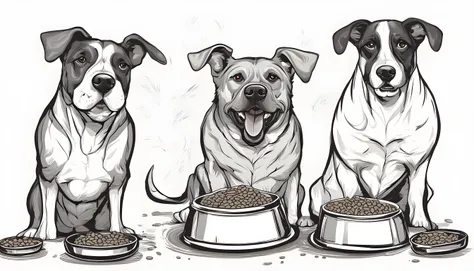We present to you the forty-first instalment of the information service on events that occurred in the world of competition law in September 2023. Again, this is a purely subjective selection of those events that we found significant or interesting.
After returning from summer holidays, we have seen a large number of decisions of competition authorities from various areas. We were faced with the difficult task of selecting the most interesting and instructive for our readers. In the end, we decided to focus on the topics of (not) allowed cooperation between competitors, illegal restrictions in distribution agreements (this time not only on resale price maintenance) and the behaviour of digital dominants. Here, we will probably disappoint those expecting something about designating the platforms that should be affected by the DMA. We leave that area to others (for now). However, we also included our (ir)regular feature on procedural aspects of anti-competitive conduct investigations.
Horizontal cooperation and cartels
As September has shown, not all cooperation within an association is met with understanding by the Competition Authority.
First, the German competition authority approved cooperation within the automotive industry to standardise a certain product - namely assemblies of electrical wires and cables carrying data or current (wire harnesses). This is the Innovation Initiative Wire Harness project within the broader Arena2036 research campus collaboration bringing together competitors from different levels of the automotive industry. The planned project ultimately consists of two parts: First, it is about researching the possibilities of automating the production of wire harnesses, which have been produced manually so far. Second, it is about establishing a new DIN standard. The German competition authority authorised this cooperation after the participants in the project undertook to keep the two parts clearly separate, on the understanding that the standardisation process must be non-discriminatory, transparent and open to all undertakings.
The French competition authority, on the other hand, sanctioned the National confederation of French tobacconists (Confédération nationale des buralistes de France), whose members had agreed to boycott a gambling distributor. The target of the boycott was the semi-state-owned lottery company Française des Jeux. The latter has agreed with the florist chain Réseau Fleuri (Florajet) to distribute online the so-called Bouquet Chance, a flower bouquet accompanied by a scratch card (notably Loto, EuroMillions and Keno). The lottery company's intention to create a parallel distribution network alongside the tobacconists was not met with understanding by the tobacconists. For this reason, the confederation agreed to boycott the launch of the new Euromilions game in Autumn 2016 and to boycott the validation of online games (notably Loto, Loto sportif and Euromilions). For this, the competition authority imposed a fine of EUR 750,000 on the tobacconist’s confederation.
Cooperation between competitors in the context of participation in tenders (bid rigging) is considered by the competition authorities to be one of the most serious cartel practices. This is also the case with the Czech Office for the Protection of Competition (OPC), which in September imposed a fine of CZK 51.5 million on three companies for coordinating their participation and bids in a tender procedure aimed at selecting a contractor to provide safety improvements at level crossings. The companies agreed on which of them would submit the most advantageous bid for the tender procedure and the bids were subsequently submitted accordingly. As allowed by the Methodology of the Office for the Imposition of Fines, the OPC imposed the fine not on the basis of the turnover of individual companies, but according to the value of the public contract, which amounted to approximately CZK 210 million. All companies were then granted a fine reduction by the OPC for improving their competition compliance programmes and for concluding a settlement agreement. Nevertheless, two of the three companies, AK signal Brno and STARMON, filed an appeal against the decision.
Distribution agreements
As part of our coverage of distribution agreements, we are unable to avoid breaking news on resale pricing, not least thanks to the OPC.
In September, the OPC continued its struggle against pet food manufacturers/distributors. This time it was a distributor of dog and cat food, EUROBEN. According to the OPC, it set minimum retail prices for its dealers to sell the food supplied by it. It allegedly monitored compliance with the minimum prices and, if it found irregularities, asked the sellers to increase their prices. If a retailer did not comply with the minimum prices, it threatened it with sanctions, which it also applied in some cases. For this practice, the OPC imposed a fine of CZK 1.1 million. Initially, EUROBEN was threatened with a fine of CZK 3.8 million. However, it was substantially reduced. First, the OPC reduced the fine by 65% after taking into account mitigating circumstances consisting of the voluntary termination of the conduct immediately after the on-site inspection, the active informing of retailers about the non-binding nature of the recommended retail prices, the above-standard cooperation during the proceedings (a precursor to leniency applications for vertical agreements) and the introduction of a new competition compliance programme. The OPC then reduced the fine by a further 20% for settling the case.
However, the OPC is not the only authority that fined resale price maintenance in September. Another was, for example, the Dutch competition authority, which fined LG Electronics Benelux Sales (LG) EUR 8 million for setting "recommended" resale prices for TV sets to seven online retailers, which LG also actively demanded to be followed. It regularly contacted retailers whose prices were lower than the recommended prices. It also required retailers not to advertise special sales promotions on price comparison sites or otherwise. Thus, a consumer was only enabled to learn about a discount on a TV set when checking out during an online purchase. Finally, LG enforced retailers not to automatically reduce prices in response to lower prices of other retailers.
Competition authorities do not only prosecute resale price maintenance, but also other practices that restrict competition between retailers.
The Greek competition authority has imposed a fine of EUR 750,656 on the press distribution agency, Argos, for infringement of the rules applicable to selective distribution systems. (If a manufacturer/distributor decides to operate a selective distribution system using authorised dealers, it may prohibit sales to non-authorised dealers. It may prohibit sales to them in a territory where a selective distribution system is not operated but an exclusive dealer is designated. It may also prohibit sales to end customers by wholesale dealers. However, it may not otherwise restrict sales to them in principle.) First, Argos prohibited authorised dealers from selling the products they distributed to each other. It also prohibited them from selling products into territories that had been allocated to other authorised dealers under the selective distribution system. Finally, it included non-compete clauses in the contracts prohibiting authorised dealers from competing with each other.
The Hungarian competition authority fined Heineken HUF 15 million (approx. CZK 966,351) for arranging for an "almost exclusive partnership" with a restaurant operated by Woda in the capital, even though the so-called Beer Act forbids it. The aim of the Beer Act is to ensure a wider range of drinks (more choice for consumers) and to reduce the number of exclusivity agreements, which are very common in the sector and prevent other breweries from entering the market. The arrangement between Heineken and Woda was not explicitly exclusive, but the delivery conditions were set in such a way as to encourage Woda to buy beer almost exclusively from Heineken. In addition to the fine, the Hungarian competition authority imposed an obligation on Heineken to implement a compliance programme and an internal control system concerning its relations with its HORECA partners.
Dominants in the digital world and before the European Commission
Our regular readers will recall the spectacular annulment of the European Commission's (EC) decision on Intel's abuse of dominance by the General Court in January 2022 (we wrote about it here), which the EC appealed. The decision was overturned because the EC, according to the General Court, failed to address the question of whether the exclusive rebates provided by Intel to customers were capable of having anticompetitive effects. However, in addition to the exclusive rebates, the EC decision also concerned so-called naked restrictions. These consisted of direct payments to manufacturers for suspending, delaying or restricting the launch of products containing chips from a competitor (AMD). With regard to these, the General Court confirmed that they constituted an abuse of a dominant position. Now, in September 2023, the EC has again fined Intel for abuse of dominance, but only for those naked restrictions, not also for rebates. The narrowing of the subject matter of the decision is matched by the fine imposed: compared to 2009, when Intel faced a fine of EUR 1.06 billion, it was now fined "only" EUR 376.34 million.
Booking Holding (Booking.com) is another undertaking that has felt the EC's fight against the big players in the digital environment. It was banned by the EC from acquiring an online travel agency (OTA) providing flight booking service, Flugo Group Holdings (eTraveli). This would have allowed Booking.com to strengthen its dominant position in the market for hotel OTAs in the European Economic Area. According to the EC, the transaction would link two market leaders in the OTAs market, with Booking.com being the leader in the hotel segment (which is the largest segment within OTAs) and eTraveli being the No 2 player in the airline segment (which is the second largest segment within OTAs). In addition, Booking.com is active in the metasearch services market, primarily through its price comparison engine KAYAK. EC's concern was that airline services are an important traffic generator for the hotel segment of OTAs as they are often the first step in planning a trip. The acquisition would thus allow Booking.com to expand its "ecosystem" of travel services. The typical "apathetic" behaviour of most consumers would lead to most of them staying on Booking.com's platforms after securing their flight tickets and searching for accommodation. This would make it more difficult for competing hotel OTAs to operate in the market.
The EC's decision in this case is the first sign of the EC's new approach to "ecosystem" mergers, i.e. mergers that extend the system of the dominant digital platforms or enhance their platforms (their functionalities). In this context, the EC will not only look at whether the transaction leads to a direct strengthening of a dominant position in the relevant market (i.e. whether it is an acquisition of a competitor). It will also assess whether the acquisition of a company operating in another market will lead to an extension/enhancement of the dominant's ecosystem that will make it more difficult for competitors to challenge its dominance. In such cases, the EC will probably not hesitate to prohibit the transaction. It can be assumed that such an approach will also shift to national competition authorities assessing transactions between regionally active platforms. At the same time, this approach is also an expression of the already publicly proclaimed desire of the EC and other competition authorities to devise and apply new (i.e. different from traditional) theories of harm that are able to address problematic mergers in the context of the new digital economy. Note that the prohibited concentration is neither horizontal nor vertical in nature. Such conglomerate combinations have so far been treated as typically unproblematic. This may therefore no longer be the case.
Procedural corner
After the holidays, we are briefly back again with our procedural corner, this time focused purely on the (non-)cooperation of undertakings during on-site inspecitons conducted by competition authorities. Repeatedly recalling these cases is important from our point of view, as these misconducts have been recurring regularly in recent times and the competition authorities, including the OPC, are prepared to impose very high fines for them.
In the first case, the Polish competition authority fined undertakings suspected of a price cartel in relation to Jura coffee machines: Euro-Net in the amount of PLN 10 million (approx. CZK 55.2 million) and to Jura Poland in the amount of PLN 1 million (approx. CZK 5.5 million). The breach of the obligation to cooperate during the on-site inspection for both undertakings consisted in the fact that their employees – after learning about the inspection – deleted messages from their instant messaging accounts (in particular WhatsApp) from their work mobile devices. One of Jura's sales managers subsequently also admitted to this. Although these fines from the Polish competition authority for procedural misconduct may seem "exotically" high, please note that the Czech OPC is also legally able to impose fines of up to 1% of an undertaking’s total turnover.
Another heavy fine for obstruction during the on-site inspection was imposed by the Greek competition authority. This was an investigation into possible anti-competitive conduct in the press distribution market, the undertaking investigated being Alter Ego Media. According to the competition authority, there were a number of obstructive acts by Alter Ego Media, which breached the obligation to cooperate actively during the local investigation. However, the main objection was that the owner of Alter Ego Media, Evangelos Marinakis (who is also the owner of Olympiakos Piraeus and Nottingham Forest football clubs), removed certain documents/evidence from the investigated premises during the on-site inspection. The fines were subsequently distributed accordingly: While Alter Ego Media was fined EUR 200,000, its owner was fined five times more. We think that the amendment of the Czech Competition Act, which obliges an individual to tolerate a on-site inspection, although according to the explanatory memorandum it is primarily aimed at the owners of the investigated premises, could also be interpreted as allowing for fining the employees of the investigated undertaking. Although the maximum fine in this case is set at CZK 300,000, we recommend avoiding breaches of the duty to cooperate and following the advice of the attorney present, who is familiar with on-site inspections.












